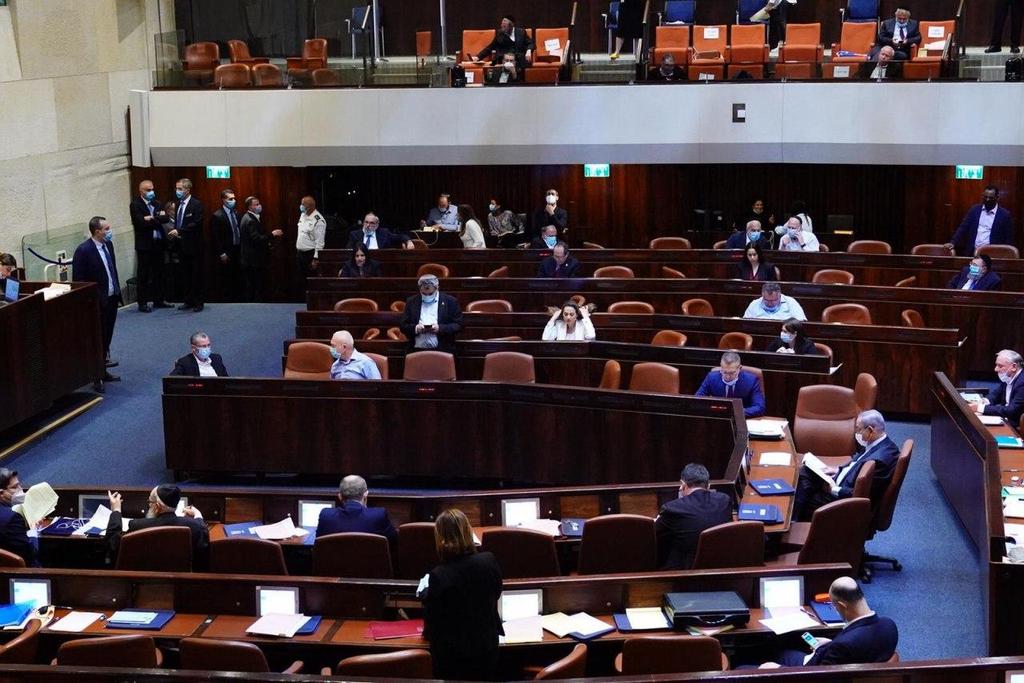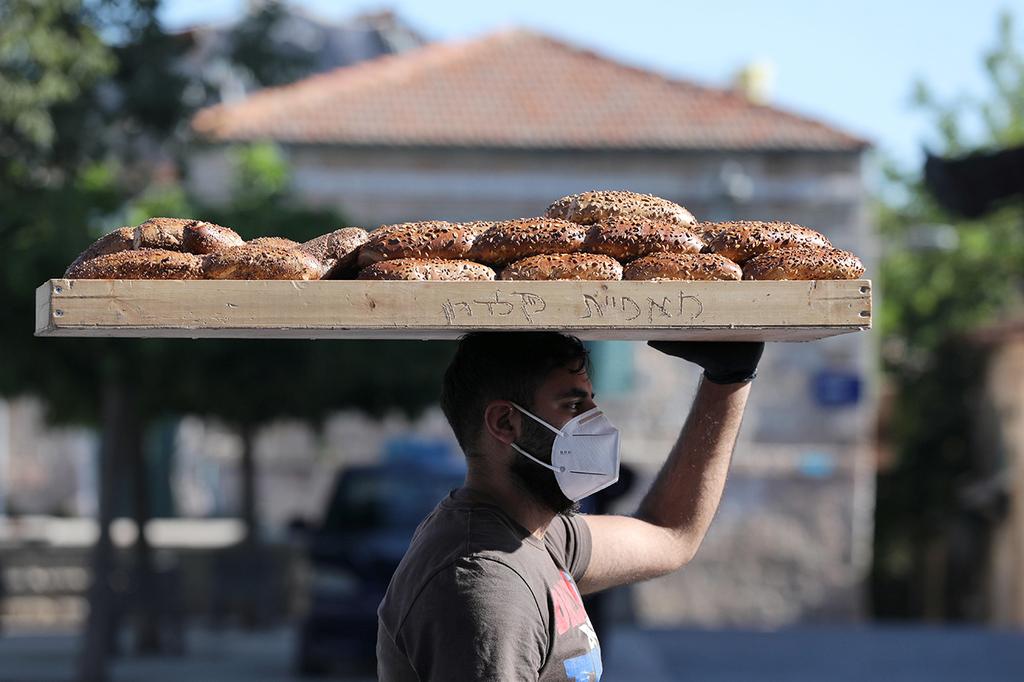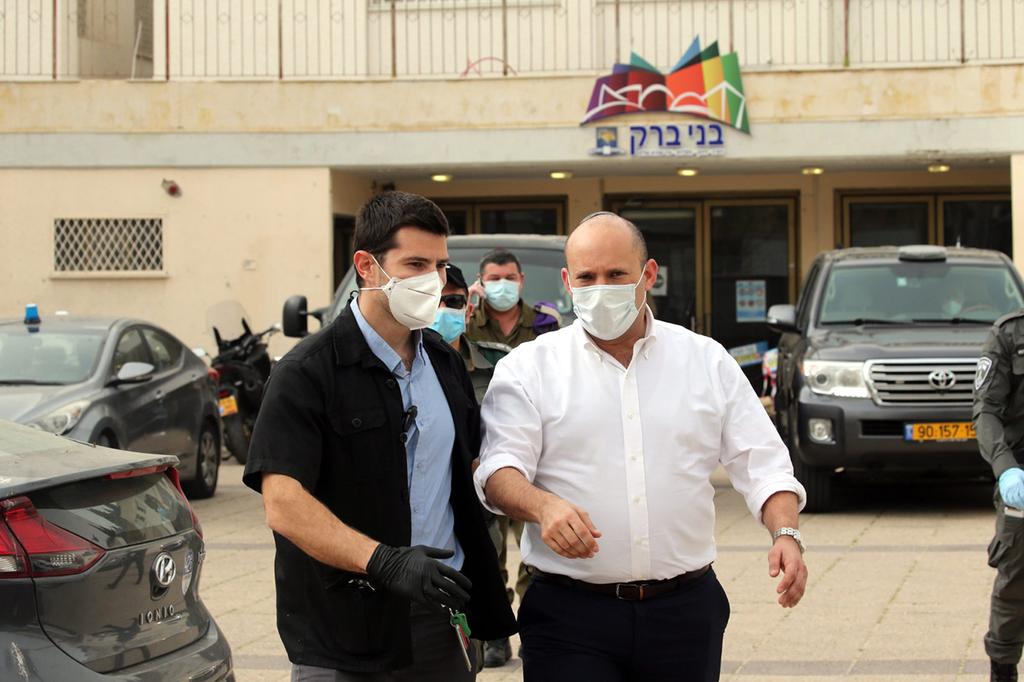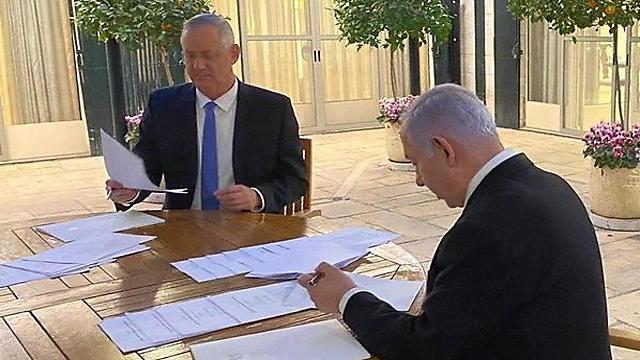Getting your Trinity Audio player ready...
Why did the Likud suddenly up the price for Blue & White to receive the Health Ministry in the new coalition agreement? Why is Benjamin Netanyahu's party demanding its political partner give up three smaller ministries in exchange?
Blue & White for its part is trying to lower the price, but the issue is still ongoing.
The two parties have created a marketplace for the health portfolio, which - in light of the pandemic that has left the world reeling - is today one the most essential ministries we have.
The fight over the Health Ministry began during the campaign season for the March 2 elections, when Blue & White announced it would be seeking the portfolio - a demand that should have come up as a deal breaker during the unity government negotiations.
By the end of March, it appeared that Blue & White No. 2 Gabi Ashkenazi was to replace Yaakov Litzman as minister.
But Litzman - one of the most out-of-touch and inefficient ministers in recent memory - resisted, and Ashkenazi was to be dispatched to the Ministry of Foreign Affairs instead.
And then came the plot twist. Litzman himself contracted COVID-19 and decided he would much rather head the Ministry of Construction and Housing. More snacks and less headaches.
And now the Health Ministry is back on the negotiating table.
When Litzman quit in late April, Blue & White suddenly wasn't so eager to get its hands on the the health portfolio. Or as the headlines on April 30 put it, Blue & White was “no longer keen to trade the Foreign Ministry for the Health Ministry."
5 View gallery


MKs vote on legislative amendments to allow the Gantz-Netanyahu coalition deal to go ahead
(Photo: the Knesset)
And so the Health Ministry once again became a cursed child, waiting patiently for the next knucklehead to stroll in and claim it.
After all, it's not just a deal for a fancy office and a handful of aides, it's a portfolio that has been long neglected, afflicted with every problem you can name and carries a vast amount of responsibility.
But then on Wednesday, the ministry's price not only rose again, it absolutely rocketed: One sickly Health Ministry in exchange for one major ministry and three "small" ones.
Meanwhile, an entire country that is crawling out of a paralyzing quarantine is forced to watch helplessly as the great wrongs of Israeli politics are laid bare.
5 View gallery


A trader at the newly reopened Mahane Yehuda market in Jerusalem wears protective mask and gloves
(Photo: EPA)
It's as if the decades of neglect the healthcare system endured under Litzman weren't enough. The neglect that left Israel at the bottom of the list in the Western world when it comes to government spending on health and the number of beds, doctors and nurses relative to population size.
We are fortunate that we have such outstanding medical staff, as they, the last line of defense in a desperate war, saved the day.
There are at least three worthy candidates for the post of health minister. Two are in charge of the largest hospitals in the country: Prof. Yitzhak Kreis, the director of Sheba Medical Center and Prof. Ronni Gamzu, the CEO of Tel Aviv's Sourasky Medical Center.
The third, departing Defense Minister Naftali Bennett, has shown that he knows how to tackle a mammoth task efficiently. But there is also Ashkenazi himself, if he ever manages to get the post.
5 View gallery


Defense Minister Naftali Bennett, right, on a visit to Bnei Brak, where the rate of coronavirus infections was disproportionately high
(Photo: Yariv Katz)
Perhaps Netanyahu can indeed pat himself on the back for the way the country has handled the coronavirus crisis, but as someone up to his neck in the still ongoing coalition negotiations, he cannot escape his responsibility for the ministry madness.
The prime minister will have to answer to the Israeli people, who are fully justified in expecting that this will be the first portfolio to be staffed by the person most qualified for the job.
It is Netanyahu's responsibility to do so, and it should be the first priority of the two future prime ministers - him and Benny Gantz.



